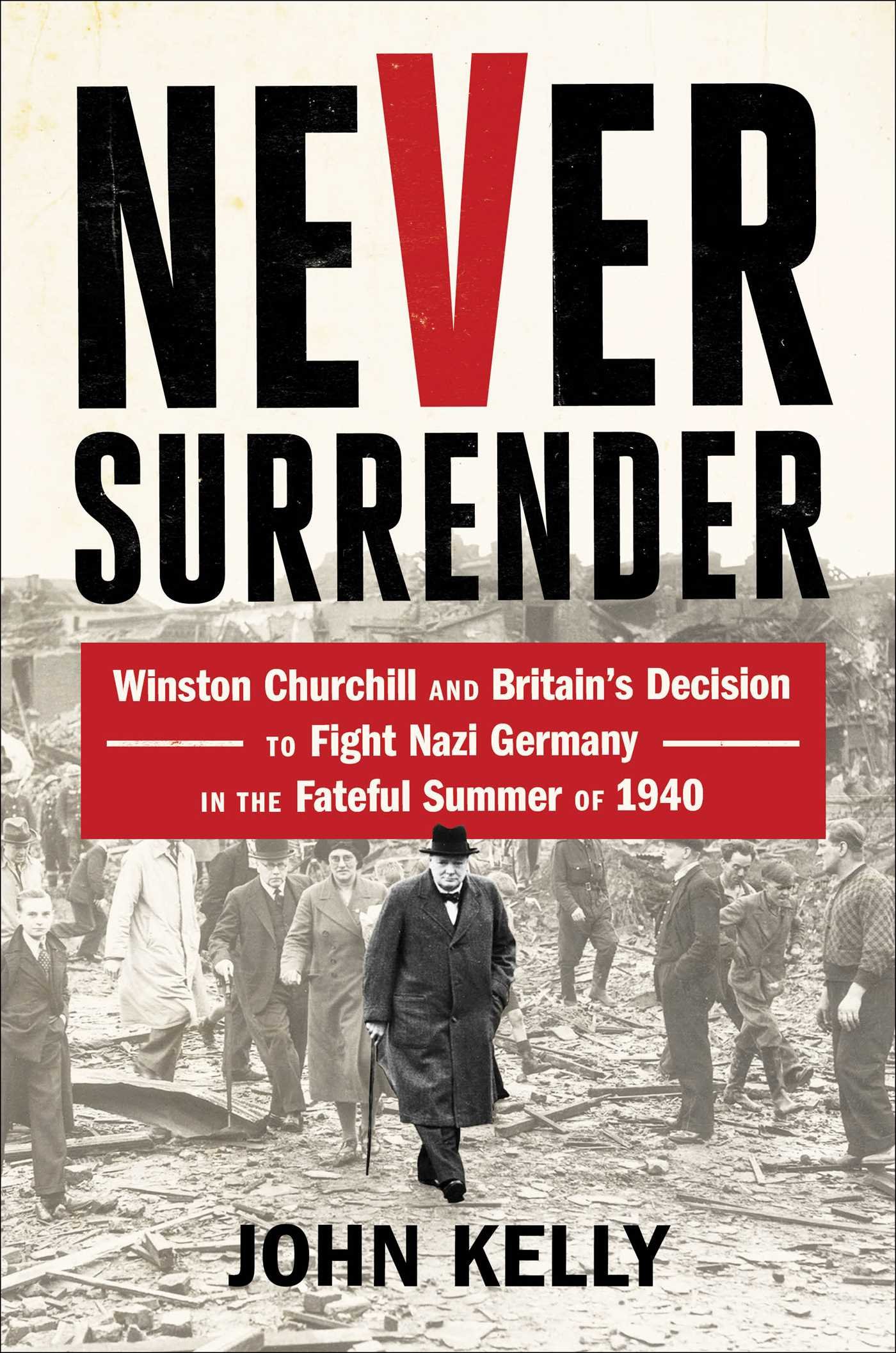Books |
Never Surrender: Winston Churchill and Britain’s Decision to Fight Nazi Germany in the Fateful Summer of 1940
John Kelly
By
Published: Oct 11, 2015
Category:
Non Fiction
In the short-form version of Winston Churchill’s life — I’m thinking of Paul Johnson’s excellent 192-page biography — we meet the Churchill who’s become legend, a late-life hero who saved the free world.
John Kelly’s “Never Surrender: Winston Churchill and Britain’s Decision to Fight Nazi Germany in the Fateful Summer of 1940” weighs in at 384 pages followed by 20 pages of footnotes, and offers a more nuanced view. One word in the subtitle is the first clue: decision. As most of us recall the run-up to World War II, Britain’s resolve was never in question. We know of one appeaser, Prime Minister Neville Chamberlain, who delivered the infamous “peace in our time” speech. In fact, that characterization slanders Chamberlain. In fact, few Brits favored another war. And the gloomiest man in Britain in those prewar years? An American: Joseph Kennedy, our ambassador to the United Kingdom and the father of our 35th President. As Kelly notes, Kennedy was less an ambassador than “a concierge booking passage for Americans to flee Britain.” This is sharp observation in the service of a balanced story. [To buy the book from Amazon, click here. For the Kindle edition, click here.]
Kelly is a narrative historian who doesn’t succumb to the ever more popular practice of emphasizing narrative over history. So “Never Surrender” begins in 1919, with the Victory Day Parade in London. Three million Allied soldiers had died in World War I, but the allies had delivered peace, and not, it was believed then, for a few years.
By 1932, it was possible to suspect that Germany would make trouble again. Here’s Churchill, speechifying in that year: “All these bands of sturdy Teutonic youths, marching through the streets and roads of Germany, with the light of desire in the eyes to suffer for their Fatherland, are not looking for status. They are looking for weapons, and, when they have the weapons, believe me they will then ask for the return of lost territories and lost colonies.”
Prescient. But in 1932, Churchill was not regarded as the hero we know. Kelly quotes the doubters.
“When Winston was born, lots of fairies swooped down on his cradle with gifts — imagination, eloquence, industry and ability. Then came a fairy who said, ‘No person has a right to so many gifts’, picked him and gave him such a shake and twist that with all these gifts he was denied judgment and wisdom.”
“Winston was often right. But when he was wrong: well, my God.”
“He has two bad ideas for every good one and was unable to tell the difference between them.”
Could such a man ever become Prime Minister? Listing his faults, Kelly suggests how unlikely that was: “The egotism, the waywardness, the ambition, the publicity, the bellicosity: all were legendary… There were also the disloyalties: jumping from one political party to another, then back again.”
But Church had the gift of personality, and it was personality that made his colleagues and a frightened country forgive him his flaws and blunders: “Old men forget, and about Churchill they forgot by the Imperial gallon.”
Kelly writes such a careful and detailed story that we don’t see much of Churchill for the first 100 pages, but once he appears he’s the most colorful figure in the book. Benjamin Welles recalls an astonishing prewar evening: “He was sitting in front of the fire, smoking a 24-inch cigar and drinking a whiskey and soda. It was obvious that he had consumed a good many whiskeys before I arrived.” Then he delivered a two hour analysis of England’s war readiness and his plan to defeat Germany. Brilliant? Yes, but also a more or less verbatim recitation of his most recent book.
Kelly is too sound to be flashy, but he knows when to rip off the smart one-liner and the telling insight. And he can paint a psychological picture: “By May 1940, the war was the bride at every wedding, the corpse at ever funeral, the song in every music hall, the subject of every conversation, the first thought every morning, the last thought every night.”
“Never Surrender” is filled with moments I’ve missed in other accounts. Others may know about the Whitsun debate, Prayer Day, the brutal winter of 1939-40, the plane crash that gave England the secret German plans for the invasion of Belgium — but I knew nothing. For some, Kelly’s book will be too rich a dish. For lovers of minute-by-minute history, it’s a feast.


